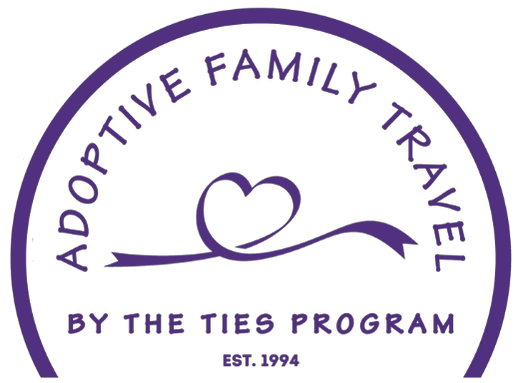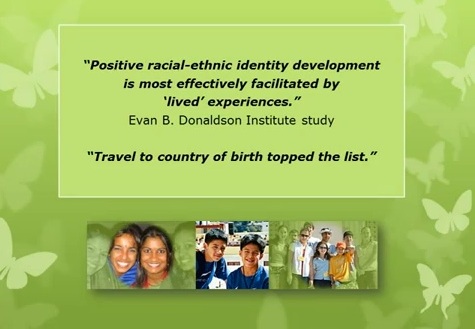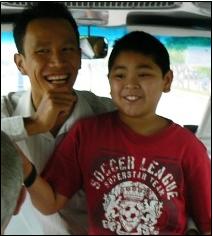About the author: Elizabeth, aka Mija, traveled with The Ties Program when she was 15 years old. She wrote this essay for her college entrance exams, and recently
updated it for a college English paper. She is currently 28 years old, attesting to the fact that the trip is a “beginning” or a day of birth as Mija states in her opening, and that adoptees continue processing it’s effect for a lifetime.
My Journey of Self Discovery
I remember the day I was born. Opening my eyes, for what seemed like the first time, I was a naïve fifteen years of age and three thousand miles from home. As I stepped off the airplane and placed my foot on unfamiliar ground, I sensed, almost instantly, I was about to embark on a journey of a lifetime.
As far back as I can remember, all I ever wanted was to be white. As hard as I tried, I could never accept the fact that I was Asian. Being adopted at four months old into a primarily white society only reminded me every day of how different I was from everyone else. Lacking a connection with not only other Asians, but also my peers, I felt like an outsider. I can recall how uncomfortable and awkward I would be in a room with other Asians, feeling almost forced to act a certain way, and be proud of who I am. Unfortunately, that was not the case, and in my mind, I stuck out like a sore thumb.
I held this title of being an Asian-American-Adoptee, but I wasn’t quite sure I wanted to be one. As the years went by, I continued to feel like I didn’t belong because I looked so different from my friends and family. My adoptive mother would always entertain the thought of traveling to Korea together to “discover my roots.” A freshman in high school with a love for traveling and an open mind, I decided to give Korea a chance.
I really do think my heart skipped a beat when we landed at Kimpo Airport in Seoul, South Korea. My eyes bounced around the ice-capped mountains as they appeared to hug the cityscape. It was just surreal and beautifully breathtaking. My mother and I traveled with a group of adoptees and their parents, and each day, as we traveled around the country, we were educated on my motherland, its people, culture and beauty. We spent a very tightly scheduled two weeks exploring the mountains, the beaches, the great city of Seoul, capital of South Korea, and finally, my birthplace and orphanage in the city of Inchon.
After a whirlwind of surprisingly emotional and humbling experiences, I realized the anxiety of not belonging that I feared for so long, was no longer present.
As I embraced Korea as my second home, I began to see its people – that I had known so little of – were actually kind and compassionate souls. After not considering myself a part of anything, I now felt a part of both worlds. Soon after arriving home in the United States, I acquired extreme pride for being Korean, holding my head high, which was the complete opposite from the old me.
I secretly promised myself I would become more involved in all that was Korean, developing a passion for Korean music, food and entertainment, among other things. I had become fascinated in learning the language, and enrolled in a small school that taught me the basics, and eventually, I went on to teach myself a little further with the Rosetta Stone language program. I began my obsessions with Korean pop music, as well as Korea’s drama genre by watching many films with English subtitles. Over the years, I have had the pleasure of working and meeting many Korean people who have, without asking, educated me countless times on their culture (language, music, fashion, etc.). More recently, I have gone on a culinary path, and taught myself how to cook a variety of traditional Korean dishes.
Overall, I believe I have become a better, more content Asian-American-Adoptee, someone who I would’ve idolized and been able to go to when I was looking for guidance all those years ago. Every day, as I learn more about myself and where I come from, I become more proud of who I am and who I am about to become.
My life has changed dramatically since my journey of self-discovery.





